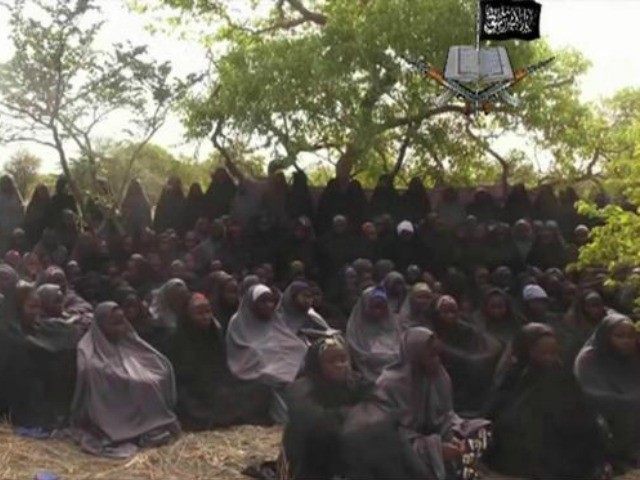Nigeria’s radical Islamic group Boko Haram announced they are willing to swap over 200 of the Chibok schoolgirls kidnapped in April 2014 for 16 terrorists who are being held by the government.
An anonymous human rights activist told the Associated Press that the group made the same offer last year when Goodluck Jonathan was president. That deal fell through due to last-minute problems. The activist claimed the swap was “stymied by the Department for State Service intelligence agency” and “the agency said it was holding only four of the militants sought by Boko Haram.”
Fred Eno, another human rights activist who took part in last year’s negotiations, confirmed “another window of opportunity opened,” but refused to divulge any details. Eno also said that new President Muhammadu Buhari, who only took office five weeks ago, offered the terrorist group “a clean slate” to persuade them back to the negotiating table. No one said how many jihadists the intelligence agency has behind bars. Buhari fired the agency’s leader last week.
Sir Andrew Pocock, the British high commissioner to Nigeria, does not believe the government should negotiate or even speak to the terrorist group. However, he admits a rescue mission for the girls is too risky.
“The only way for the return of the girls, in my personal opinion, is through the defeat of Boko Haram,” he explained. “I don’t think we will advocate talking to people that abduct innocent civilians and cut people’s throats on video and show it to the rest of the world. But what we could be talking about is disarmament and a rehabilitation process for those who are willing to put down their weapons.”
Boko Haram kidnapped 274 mostly Christian girls from their school in Chibok in April 2014. The kidnapping inspired the hashtag #BringBackOurGirls. Many celebrities, including First Lady Michelle Obama, posted pictures on Twitter of themselves holding a placard with the hashtag on it. The fad lost its prominent place in the news over time, and the girls became a passing thought in many minds, even though hundreds of girls are still missing.
In the past year, numerous people told media outlets they believed they had seen the Chibok girls. One woman captured by Boko Haram told the BBC that the girls “were treated differently – their food [was] better and water clean.” The families told Deutsche Welle they still hold out hope authorities will rescue their daughters. AFP interviewed some girls who managed to escape Boko Haram.

COMMENTS
Please let us know if you're having issues with commenting.